Contextual understanding Normal Building Vocabulary Worksheets for Ages 4-9
5 filtered results
-
From - To
Discover our "Contextual Understanding Normal Building Vocabulary Worksheets" designed specifically for children ages 4-9! These engaging worksheets promote reading comprehension by helping young learners acquire vocabulary in context. Each activity encourages students to connect words with meanings through fun exercises, including matching words to pictures and filling in the blanks within sentences. Our carefully curated resources support key learning skills, enhancing language development and critical thinking. Perfect for classroom or home use, these interactive worksheets make vocabulary building a delightful experience for young minds. Empower your child’s literacy journey today with our creative and effective contextual understanding tools!
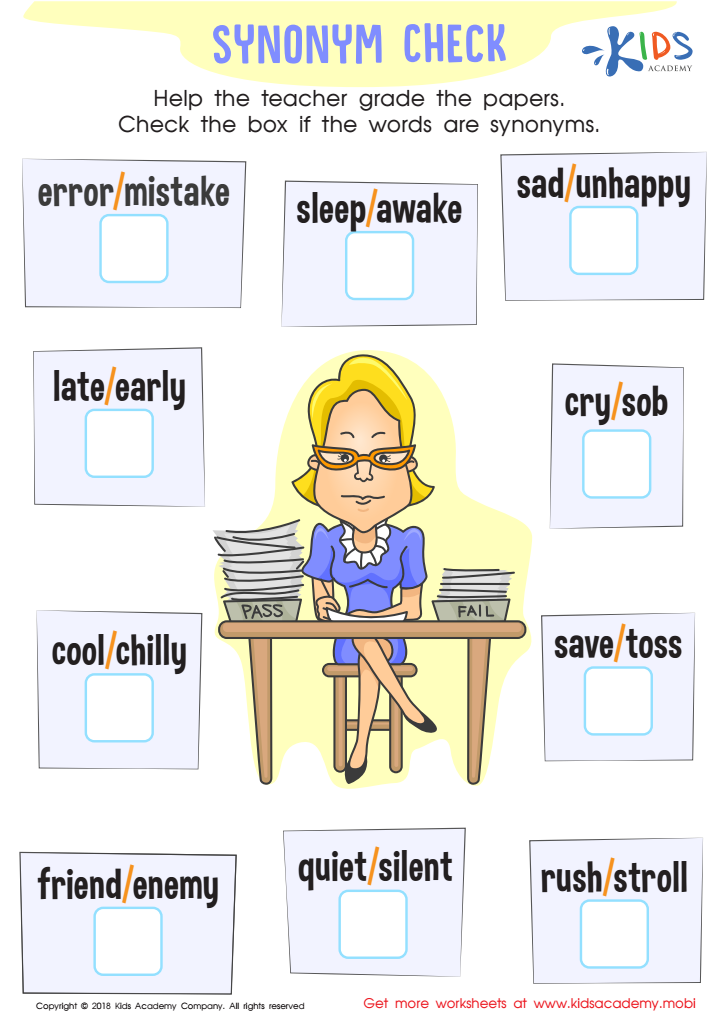

Synonym Check Worksheet
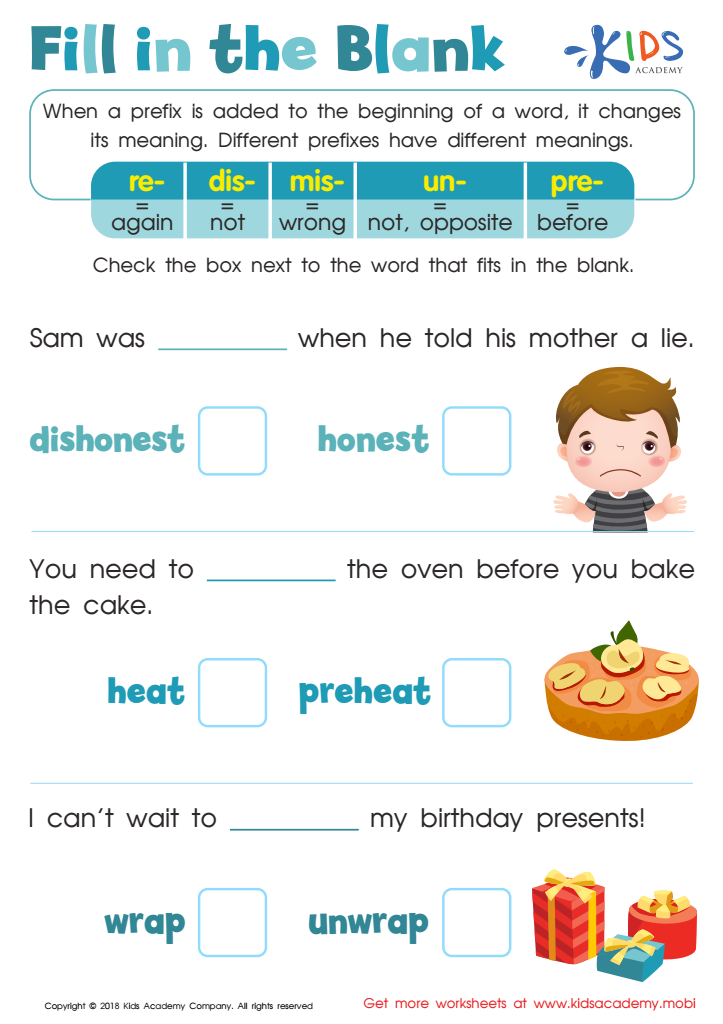

Reading: Fill in the Blank Worksheet
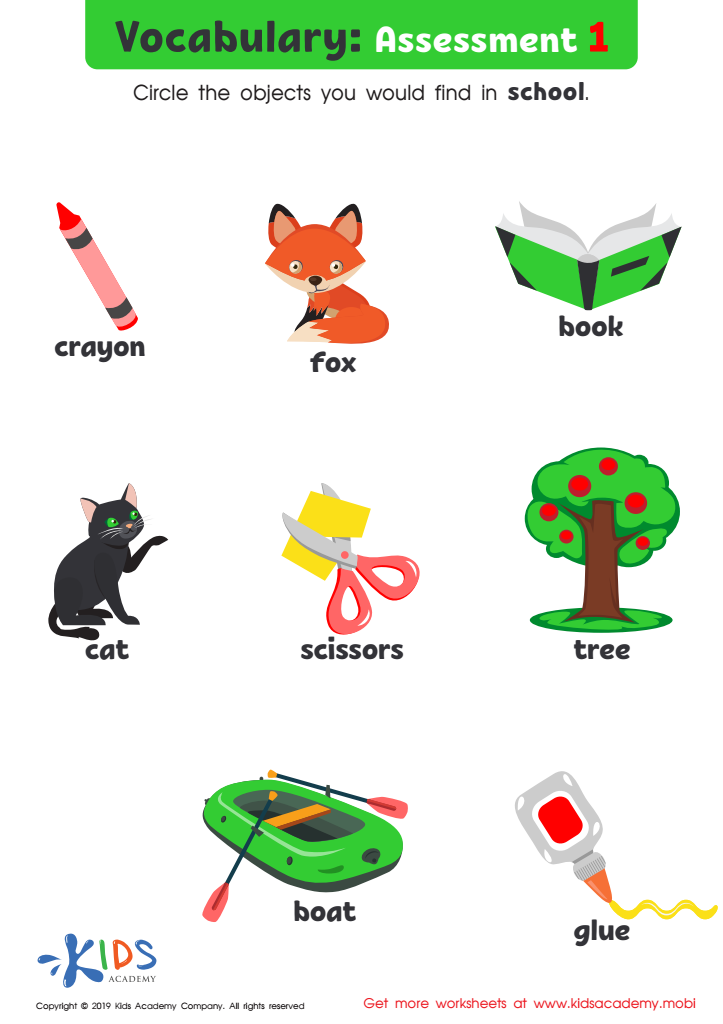

Vocabulary: Assessment 1 Worksheet
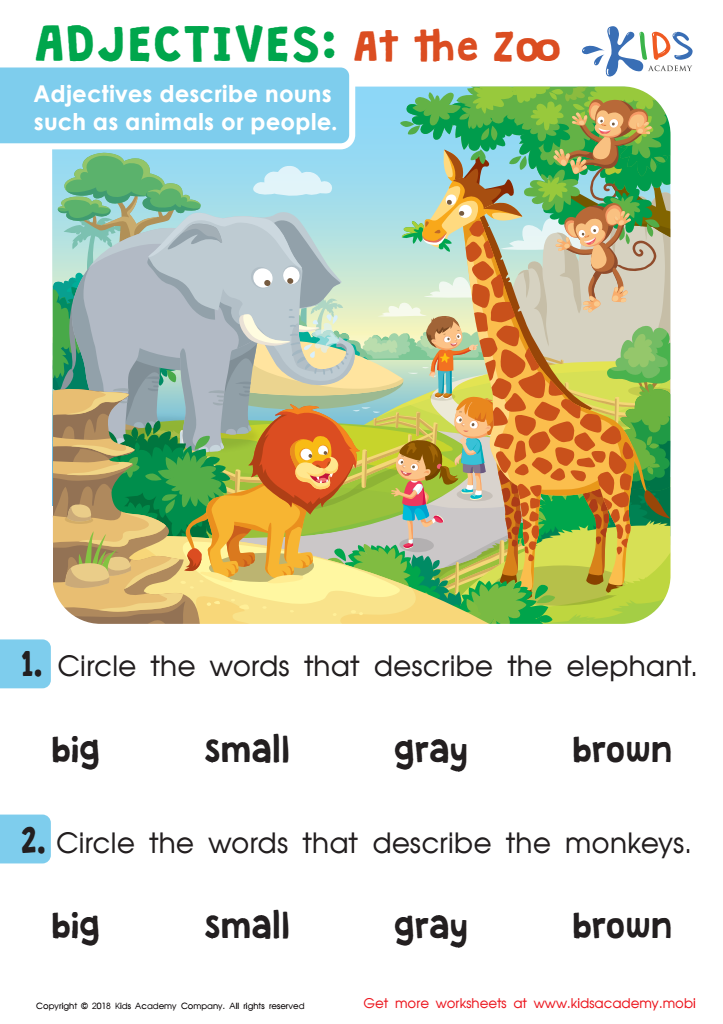

Adjectives: At The Zoo Worksheet
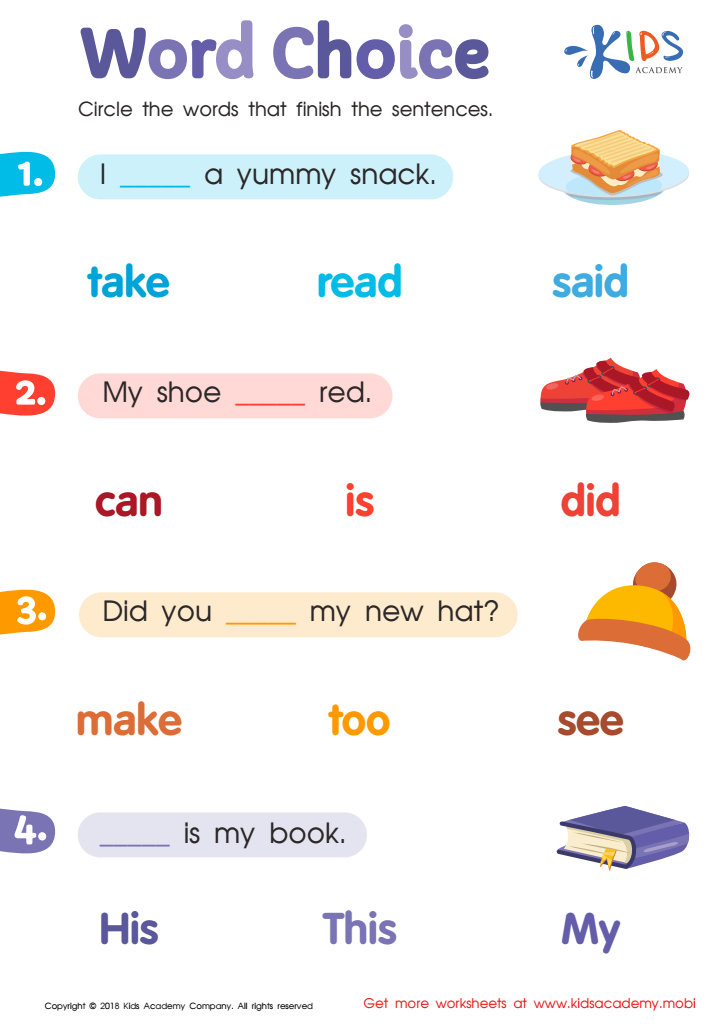

Word Choice Worksheet
Contextual understanding and vocabulary building are essential components of language development for children ages 4-9. This age group is crucial for instilling foundational literacy skills that will last a lifetime.
When children grasp vocabulary in context, they learn to associate words with their meanings based on surrounding information, leading to deeper comprehension. For instance, when a child encounters the word "ocean" in the phrase “The ocean waves crashed against the shore,” they can visualize and understand its meaning more effectively than through isolated definitions. This not only enriches their vocabulary but also enhances critical thinking skills as they learn to infer meaning from various contexts.
Moreover, strong vocabulary skills are directly linked to academic success in reading, writing, and communication. Children with robust vocabularies are better equipped to express themselves clearly and understand more complex texts as they grow. Teachers and parents play a crucial role by creating a rich language environment, encouraging discussions, and introducing diverse words in relatable contexts, such as through storytelling or daily activities.
Ultimately, prioritizing contextual understanding in vocabulary development fosters confident learners and communicators, laying the groundwork for lifelong literacy and learning. Investing attention in this area significantly benefits children’s cognitive and social development.

 Assign to My Students
Assign to My Students





.jpg)










